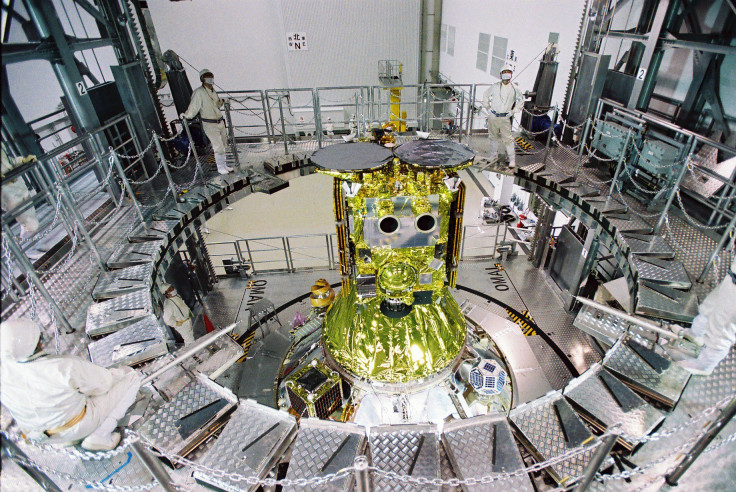Japan’s Hayabusa 2 Spacecraft Lands On Asteroid Ryugu For The Second Time To Collect Samples

Japan has successfully landed its Hayabusa 2 spacecraft on a distant asteroid for the second time. The spacecraft’s mission is to collect samples that scientists hope could shed light on the origins of the Solar System.
Japan Aerospace Exploration Agency (JAXA) announced that the unmanned spacecraft the size of a large refrigerator has touched down on asteroid Ryugu for the second time on Wednesday morning.
“This is the second touchdown, but doing a touchdown is a challenge whether it’s the first or the second,” Hayabusa 2 project manager Yuichi Tsuda said ahead of the mission. “The whole team will do our best so that we’ll be able to complete the operation.
Hayabusa 2 will collect samples from beneath the surface of asteroid Ryugu, which contain rubble left over from the birth of planets. JAXA said the samples may contain water and organic materials.
The spacecraft will bring the samples to Earth, where these will be studied. Scientists hope that analysis of these samples could help them better understand how the solar system formed. The space agency said that if the mission is successful, it would be the first time that a space probe has taken samples from below the surface of an asteroid.
[PPTD] These images were taken immediately after today’s touchdown (Jul 11) with the ONC-W1. First photo was taken at 10:06:32 JST (on-board time) and you can see the gravel flying upwards. Second shot was at 10:08:53 where the darker region near the centre is due to touchdown. pic.twitter.com/6OhrYShz4D
— HAYABUSA2@JAXA (@haya2e_jaxa) July 11, 2019
Hayabusa 2 first arrived at the asteroid in June 2018. In April, it blasted a crater into the space rock using a device packed with plastic explosive. Japanese scientists created the artificial crater to study the pristine materials below the asteroid’s weathered surface.
The space probe is expected to depart Ryugu in December 2019 along with samples collected from below the surface of the asteroid. Hayabusa 2 is expected to deliver this precious cargo to Earth by the end of 2020.
If all things go as planned, Japan’s Hayabusa 2 will be the first space mission to bring back samples from a C-class, or carbonaceous asteroid. About 75 percent of known asteroids are classified as C-class.
© Copyright IBTimes 2024. All rights reserved.





















